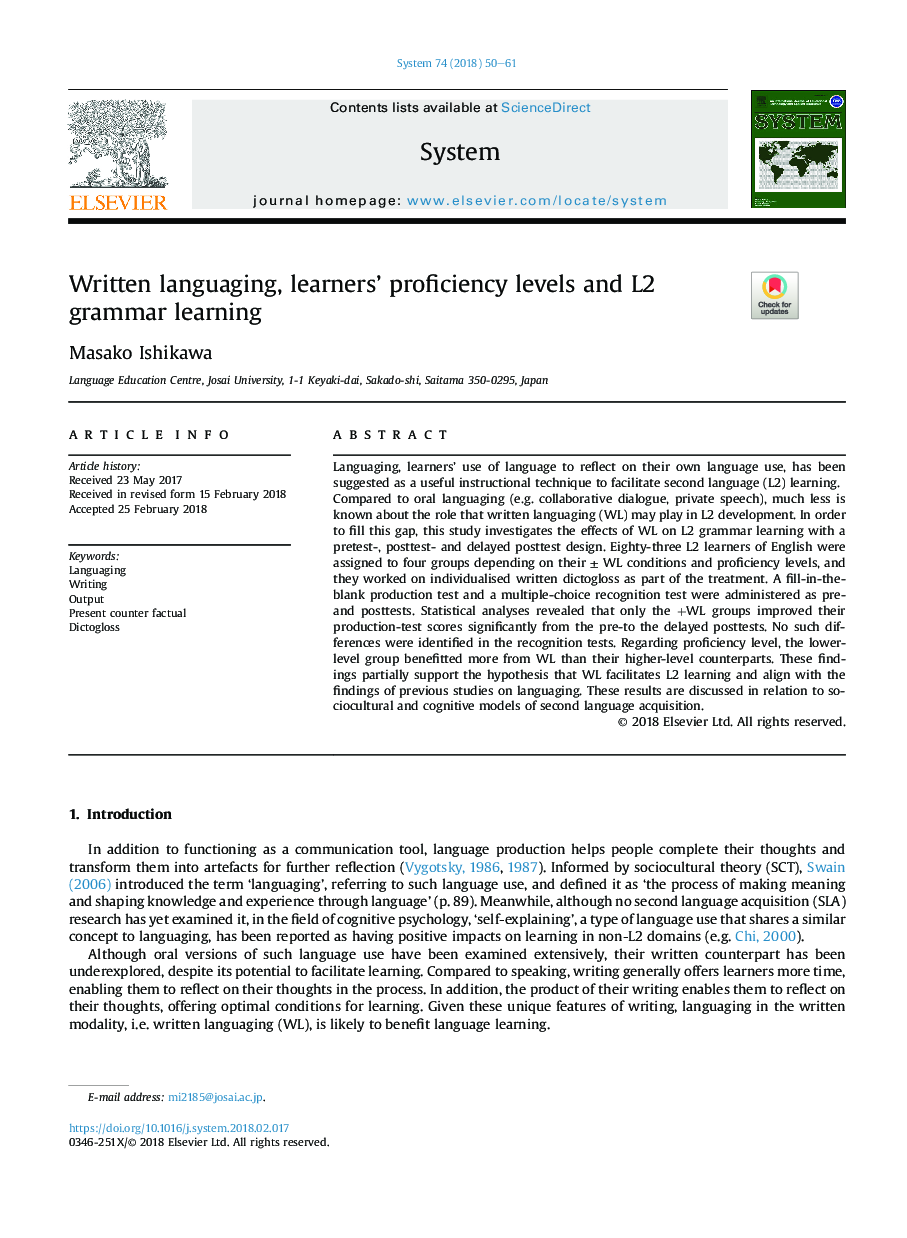| Article ID | Journal | Published Year | Pages | File Type |
|---|---|---|---|---|
| 6849302 | System | 2018 | 12 Pages |
Abstract
Compared to oral languaging (e.g. collaborative dialogue, private speech), much less is known about the role that written languaging (WL) may play in L2 development. In order to fill this gap, this study investigates the effects of WL on L2 grammar learning with a pretest-, posttest- and delayed posttest design. Eighty-three L2 learners of English were assigned to four groups depending on their ± WL conditions and proficiency levels, and they worked on individualised written dictogloss as part of the treatment. A fill-in-the-blank production test and a multiple-choice recognition test were administered as pre- and posttests. Statistical analyses revealed that only the +WL groups improved their production-test scores significantly from the pre-to the delayed posttests. No such differences were identified in the recognition tests. Regarding proficiency level, the lower-level group benefitted more from WL than their higher-level counterparts. These findings partially support the hypothesis that WL facilitates L2 learning and align with the findings of previous studies on languaging. These results are discussed in relation to sociocultural and cognitive models of second language acquisition.
Keywords
Related Topics
Social Sciences and Humanities
Arts and Humanities
Language and Linguistics
Authors
Masako Ishikawa,
